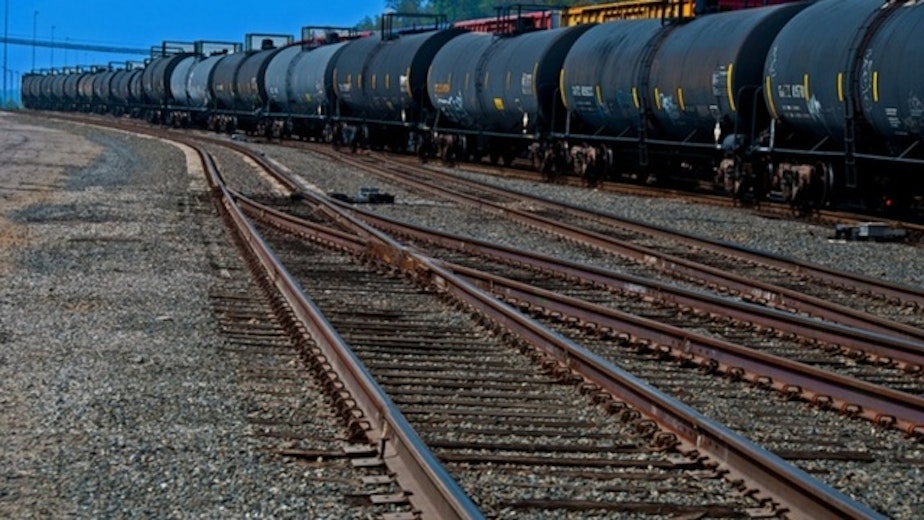Port Of Portland: We’ll Pass On Crude Oil By Rail—For Now

Have you been wondering about the Port of Portland’s position on oil by rail? If so, you’re not alone.
As more and more oil by rail developments crop up around the Pacific Northwest, the port has received “numerous inquiries” about whether it, too, would be willing and able to receive shipments of crude from the Bakken oil fields.
These inquiries have come both from companies that want to ship oil by rail to the Port of Portland and community groups that don’t want any such thing to take place.
In response, the port released a statement on Tuesday outlining its position on the matter.
The statement boils down to this:
“The Port is interested in being part of an American energy renaissance brought on by this remarkable domestic oil transformation. However, we do not believe that we have sufficient answers to the important questions regarding environmental and physical safety to proceed with any type of development at this time.
Our interest will begin to grow once we have the confidence that transportation of crude oil by rail continues to meet all state, federal and local transportation rules and regulations and exhibits a sufficient accident-free record for a sustained period of time.”
In other words: It’s a nice idea, and we might consider it one day, but we’re not sure it’s safe just yet.
Port Deputy Director Curtis Robinhold confirmed my reading of the statement.
“We’d like to watch the evolution of the space,” he said. “It’s going to take awhile to develop and until we have enough confidence that we can proceed with development in a community-supported way. We need to see that it’s not only a good business opportunity but a safe one.”
Robinhold said the port does, in theory, have the infrastructure to host an oil-by-rail development. But the timeline the port has in mind for resolving safety and environmental concerns “is not a matter of weeks or months.” Before the port would consider the idea, he said, there would need to be “safer rail cars, better standards around rail speed in urban areas, and some level of certainty around the content of the cars.”
“If the entire rail fleet shifted to rail cars that are double-hulled, that might make the difference, but it might not,” he said.
The port’s official statement references safety concerns following “approximately 10 derailments” since 2008.
“There have also been several recent events, particularly involving the transport of light Bakken crude oil in rail cars, which represent considerable cause for concern triggering a close examination of the transportation network.”
On the other hand, the port says, the safety issues could be addressed:
“However, we note with interest the recent affirmative steps by the major North American railroads to begin addressing some of these issues, including lowering train speed, a call for safer train cars, increases in track inspections and increases in emergency response training.”
The port can’t discuss the specific inquiries it’s gotten from oil-by-rail developers, so it’s unclear whether it rejected a concrete proposal. But oil-by-rail critic Brett VandenHeuvel of Columbia Riverkeeper says the Port of Portland’s position statement makes him wonder: Why don’t other ports like the Port of Vancouver and the Port of St. Helens have the same level of concern?
Read: Waypoints Blog's previous coverage of the crude oil terminals.
Copyright 2014 EarthFix. To see more, visit earthfix.kuow.org.
